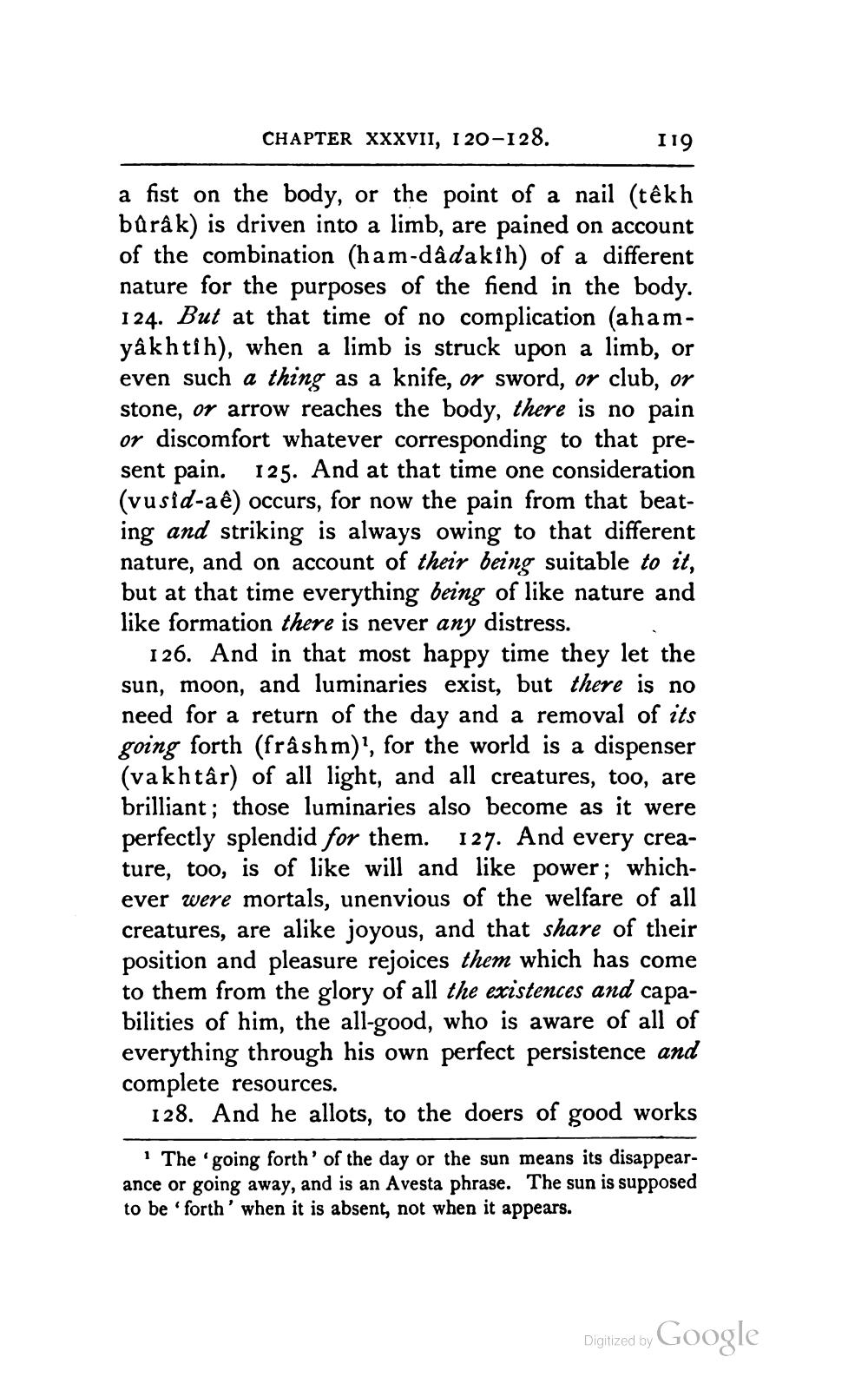________________
CHAPTER XXXVII, 120-128.
119
a fist on the body, or the point of a nail (têkh bûrâk) is driven into a limb, are pained on account of the combination (ham-dadakih) of a different nature for the purposes of the fiend in the body. 124. But at that time of no complication (ahamyâkhtih), when a limb is struck upon a limb, or even such a thing as a knife, or sword, or club, or stone, or arrow reaches the body, there is no pain or discomfort whatever corresponding to that present pain. 125. And at that time one consideration (vusid-ae) occurs, for now the pain from that beating and striking is always owing to that different nature, and on account of their being suitable to it, but at that time everything being of like nature and like formation there is never any distress.
126. And in that most happy time they let the sun, moon, and luminaries exist, but there is no need for a return of the day and a removal of its going forth (frâshm)', for the world is a dispenser (vakh târ) of all light, and all creatures, too, are brilliant; those luminaries also become as it were perfectly splendid for them. 127. And every creature, too, is of like will and like power; whichever were mortals, unenvious of the welfare of all creatures, are alike joyous, and that share of their position and pleasure rejoices them which has come to them from the glory of all the existences and capabilities of him, the all-good, who is aware of all of everything through his own perfect persistence and complete resources.
128. And he allots, to the doers of good works
1 The 'going forth' of the day or the sun means its disappearance or going away, and is an Avesta phrase. The sun is supposed to be 'forth' when it is absent, not when it appears.
Digitized by Google




